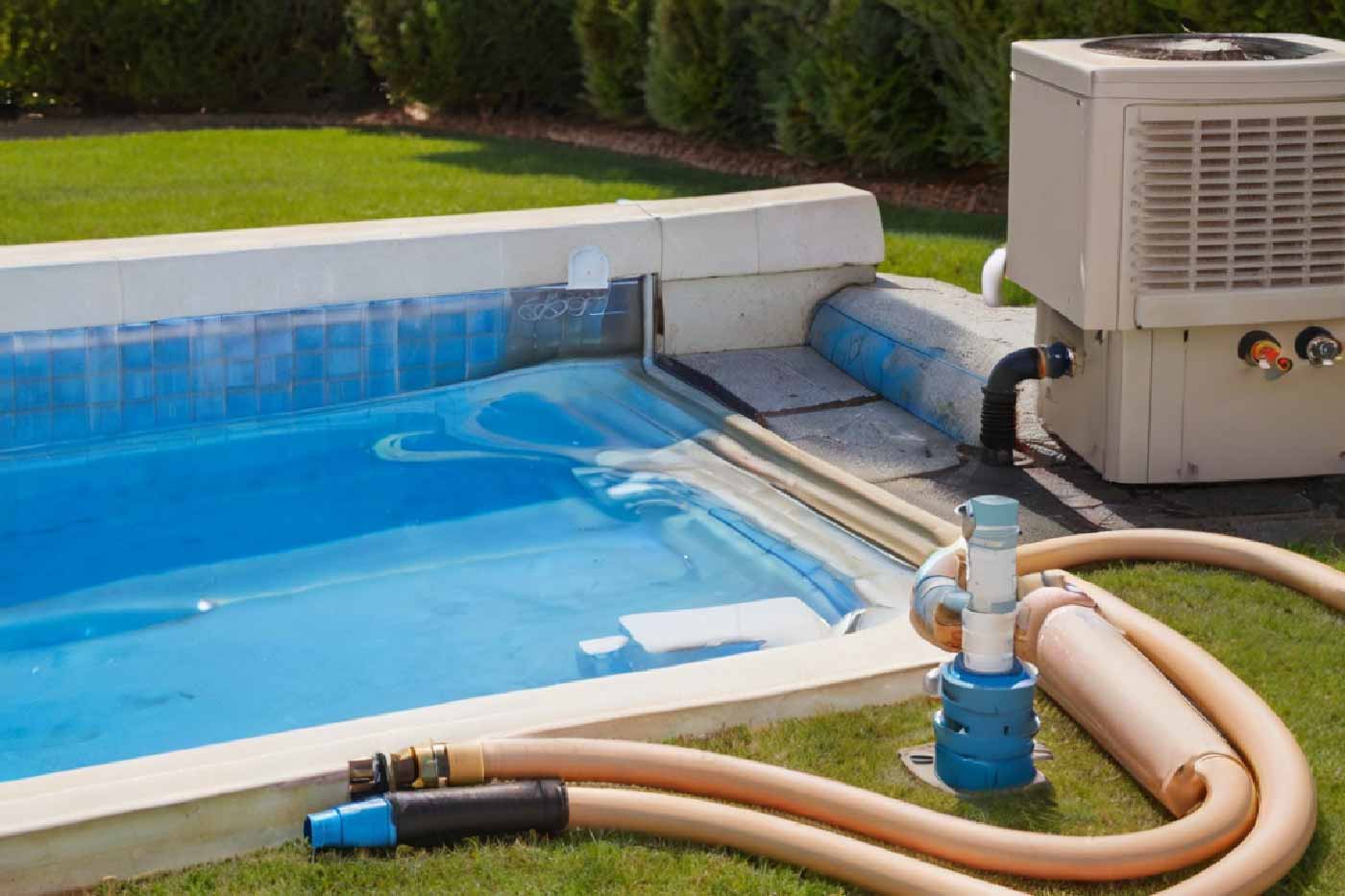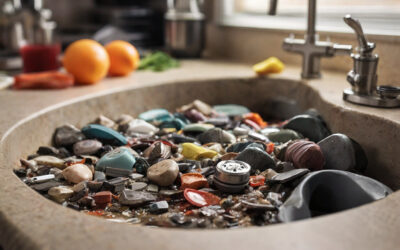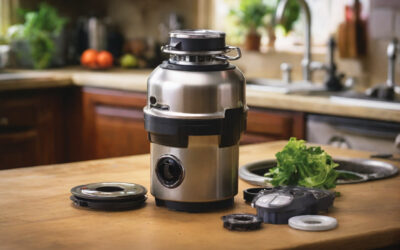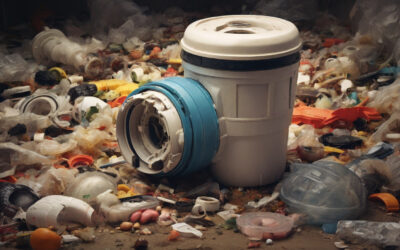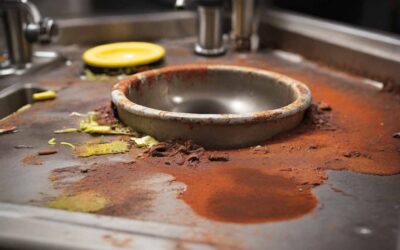Identifying “Who Can Run a Gas Line for a Pool Heater” is crucial for any pool owner aiming to install a heating system. This task demands specific expertise and certification due to the technical and safety challenges involved. It’s essential to choose a professional with the right qualifications to ensure a safe and efficient setup. This brief overview highlights the importance of selecting a professional for the installation. Focusing on safety, efficiency, and compliance with local regulations.
What is a Gas Pool Heater
A gas pool heater works by using natural gas or propane. Is popular for heating swimming pool water. These heaters are famous for their rapid heating capabilities. Allowing for quick temperature adjustments regardless of outdoor conditions.
What are the benefits of Gas Pool Heaters
Extended Swimming Season
One of the primary benefits of gas pool heaters is their ability to extend the swimming season. By efficiently maintaining optimal water temperatures, these heaters enable pool use well into cooler months. This extension not only maximizes the value of your pool investment. Also increases the opportunities for exercise, relaxation, and entertainment.
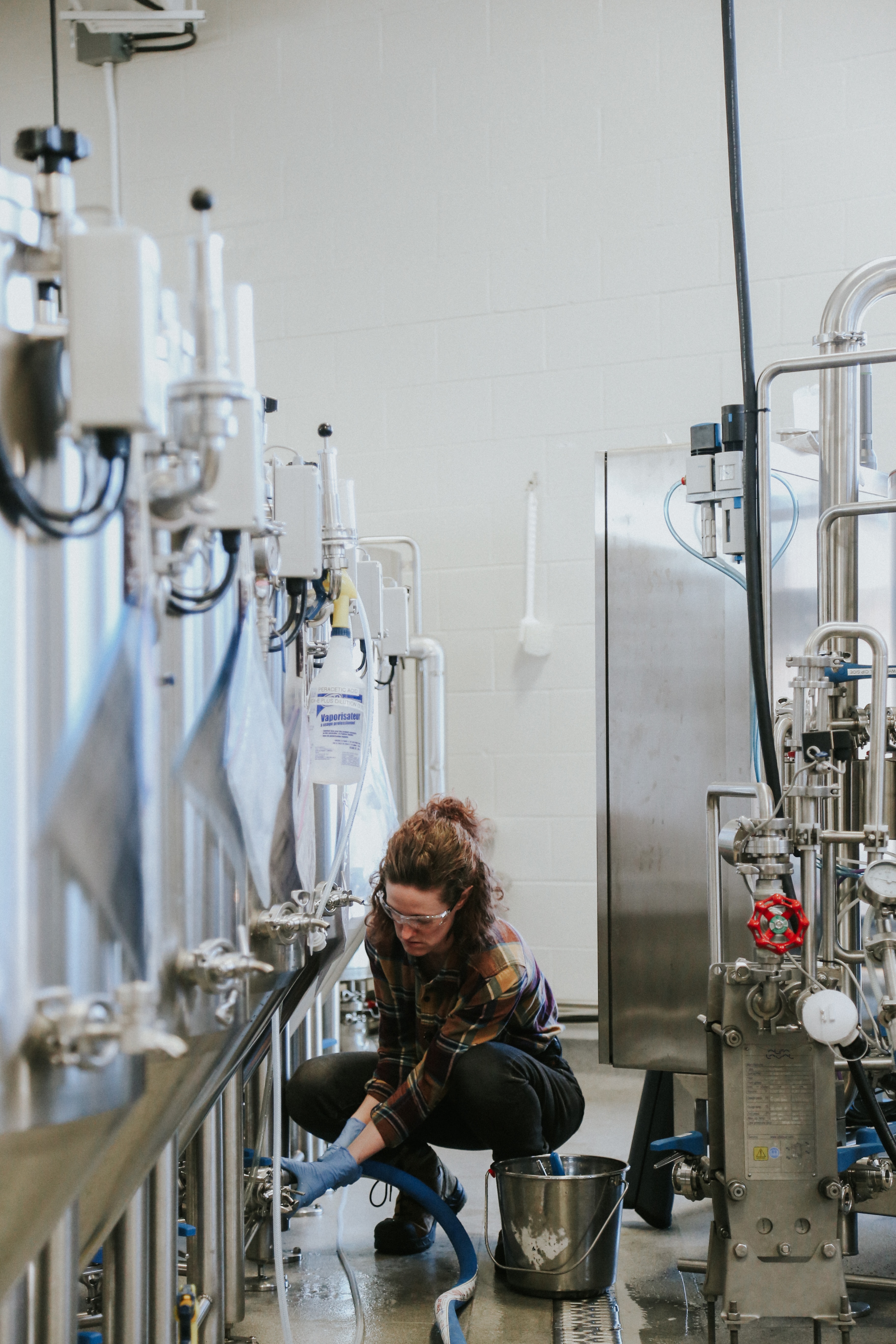
Speed
When it comes to heating pool water, gas heaters offer excellent efficiency. This rapid heating capability is especially beneficial for a quick warm pool or swimming for minutes. Unlike solar or electric heat pumps. As they take hours to significantly change water temperatures. Because gas heaters can achieve the necessary warmth in a much shorter timeframe. Making pool sessions enjoyable without the lengthy wait.
Cost-Efficiency for Short-term Use
Gas pool heaters are particularly cost-efficient for pools that have rare uses. Since these heaters can quickly heat the pool water on demand, they don’t need long-term operation. This on-demand operation leads to significant energy savings. Because You won’t be wasting money heating the pool when it’s not in use. Thereby reducing overall operational costs.
Flexibility
The operation of gas pool heaters is impressively flexible. As they don’t rely on external factors like sunlight or ambient air temperature. This means you can heat your pool to a comfortable swimming temperature regardless of the weather conditions. Making sure a consistently warm and inviting pool whenever you wish to use it.
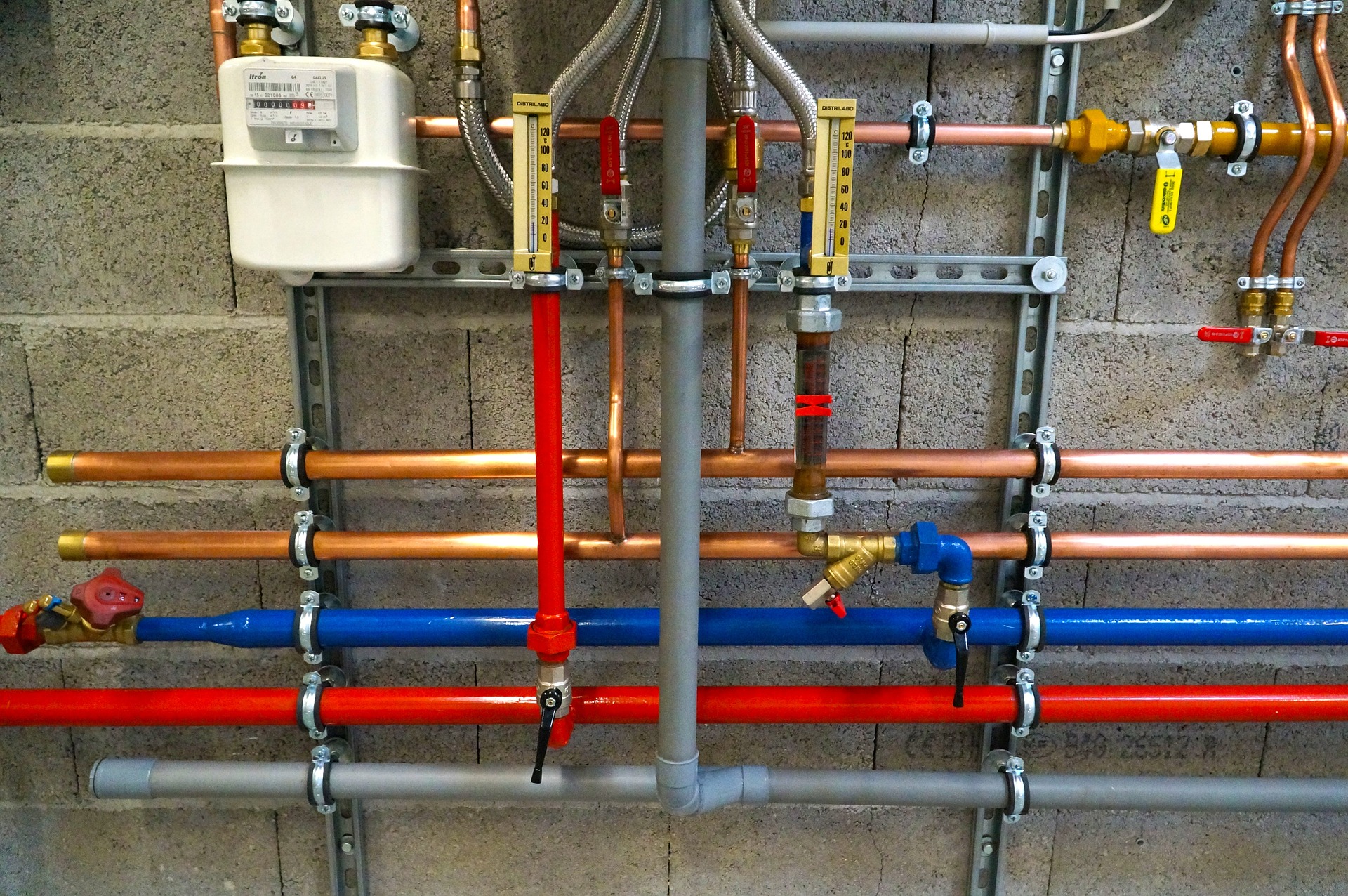
Eco-Friendly Options
Given the growing concern for environmental sustainability. The latest gas pool designs offer energy efficiency and emissions reduction. These advancements allow you to enjoy the benefits of a warmer pool while living a green lifestyle. Choosing an eco-friendly gas heater can help minimize your carbon footprint and keep you environmentally conscious.
Durability
Durability is another significant advantage of gas pool heaters. With proper care and maintenance, these heaters can reliably serve your pool heating needs for up to 10 years. This longevity ensures that your investment in a gas pool heater continues to pay off. Not just for one season only instead over many seasons. Providing both warmth and value long-term.
Step-by-Step Installation of a Gas Pool Heater
The installation involves several key steps. Things like choosing a suitable location, ensuring proper ventilation, and connecting to the gas supply, As well as adhering to safety standards. Given the complexity, professional installation is advisable for safer and better functionality.
Who Can Run a Gas Line for a Pool Heater
Professional plumbers or HVAC technicians with certifications in gas fitting and experience in pool heater installations are professional to install a gas line for a pool heater. It’s crucial to hire someone with the expertise and credentials to ensure safety and compliance with local regulations.
What is the Total Cost of Adding a Gas Line Heater to the Pool
The cost varies on the distance of the gas line, the type of heater, and local labor rates. On average, homeowners might expect to spend between $1,500 and $4,500 for a comprehensive installation.
Different Ways to Heat Pool Water
- Solar Heaters ($2,000-$4,000): Utilize renewable energy, best for sunny areas, with lower operating costs.
- Electric Heat Pumps ($2,500-$5,000): Efficient in warm climates, they work well when the air temperature is above 50°F.
- Gas Heaters ($1,500-$6,000): Offer the fastest heating capability; ideal for any climate, especially effective for large pools or quick heating needs.
Natural Ways to Heat Water for Pool
- Solar Blankets: Minimize heat loss and use solar energy to warm the water.
- Landscaping: Planting trees and shrubs can reduce wind and naturally warm your pool area.
- Using a Windbreak: Structures or natural barriers that reduce wind speed over the pool surface, decreasing cooling effects.
Selecting the Best Gas Line Pool Heater
Choosing the right gas pool heater is crucial for extending your swimming season and ensuring efficient, cost-effective operation.
Here’s a streamlined guide to selecting the ideal heater for your needs:
Pool Size and Volume
The size and volume of your pool directly influence the necessary heater capacity. For a quick note this measures in British Thermal Units (BTU). Larger pools need heaters with higher BTU ratings to efficiently warm the water. A general estimate is 50,000 to 100,000 BTUs for every 10,000 gallons of water, which can again vary on pool characteristics.
Climate
Your local climate significantly impacts your heater selection. Cooler climates demand more powerful heaters to maintain comfortable water temperatures. Choosing a heater with a higher BTU rating is advisable if you live in a cooler region to ensure consistent warmth.
Usage Pattern
How often and in what manner you use your pool affects the type of heater you should choose. For infrequent or sporadic use, a gas heater’s rapid heating capability makes it a cost-effective choice, allowing for quick temperature adjustments.
Energy Efficiency
Energy efficiency is crucial for minimizing operational costs and environmental impact. Seeking models with high-efficiency ratings (80% to 95%) can save on gas consumption. Though efficient models may have higher initial costs, the long-term savings can be substantial.
Additional Considerations
Durability and Maintenance
Opt for models known for their durability and ease of maintenance. Heaters constructed with corrosion-resistant materials will last longer, especially in harsh weather conditions or if the pool uses saltwater chlorination.
Installation and Operating Costs
Consider the initial installation costs, including any necessary modifications to your existing gas line or pool setup. Also, factor in the ongoing operating costs, which can vary based on the heater’s efficiency and your local gas prices.
Environmental Impact
For those concerning individuals with environmental sustainability, consider models that produce lower emissions. Advances in technology have led to the development of gas pool heaters that are not only efficient but also environmentally friendly.
Maintenance and Care
To ensure the longevity and efficiency of your gas pool heater, a comprehensive approach to maintenance and care is paramount. Here is a vast discussion on the key aspects of maintaining your pool heater. Things such as annual inspections, regular cleaning, and the crucial process of winterization.
Annual inspections
Maintaining a gas pool heater involves crucial steps to ensure its longevity and efficient performance. Annual inspections by expert technicians are key to identifying any potential issues early. Things like checking gas connections, ensuring proper ventilation, and examining the heat exchanger for signs of wear. These inspections help maintain the heater’s safety and operational efficiency.
Regular cleaning
Regular cleaning of both the exterior and interior components of the heater is essential. Because it helps to prevent blockages and maintain optimal airflow. As it is vital for the combustion process. Keeping the venting system clear of obstructions also ensures efficient exhaust.
Winterization
Winterization is particularly important in colder climates to protect the heater from freezing temperatures. This process includes shutting off the gas supply. Draining all water from the heater to prevent freezing damage, and covering the heater for protection. Insulating pipes can further safeguard the heater during the off-season. Ensuring that it remains in good condition for when warmer temperatures return.
By adhering to these maintenance practices. Pool owners can enjoy efficient heating and extend the lifespan of their gas pool heater. Ensuring a warm and welcoming pool experience throughout the year.
Conclusion,
In conclusion, ensuring the safe and efficient installation of a gas line for a pool heater requires the expertise of qualified professionals. Homeowners should prioritize hiring licensed and experienced contractors or plumbers who are knowledgeable about local building codes and safety regulations. By entrusting this task to trained professionals, individuals can minimize the risk of accidents, ensure compliance with legal requirements, and enjoy the benefits of a properly functioning pool heater system. When it comes to “Who Can Run a Gas Line for a Pool Heater,” the answer is clear: qualified professionals with the necessary skills and expertise.
FAQ
- Can I run a gas line for my pool heater myself?
- It is highly recommended to hire a licensed and qualified professional for running a gas line, as working with gas lines involves potential safety hazards. DIY installation may not comply with local codes and regulations, posing risks to both property and occupants.
- What type of professional can run a gas line for a pool heater?
- A licensed and experienced plumber or a qualified HVAC (heating, ventilation, and air conditioning) contractor is typically authorized to run gas lines. Make sure the professional has knowledge of local building codes and gas line installation regulations.
- Do I need a permit to run a gas line for a pool heater?
- In many jurisdictions, a permit is required for installing or modifying gas lines. A licensed professional will usually handle obtaining the necessary permits and ensure that the installation complies with local regulations
- How much does it cost to hire a professional to run a gas line for a pool heater?
- Costs can vary based on factors such as location, complexity of the installation, and the distance from the existing gas source. It’s advisable to obtain quotes from multiple professionals and discuss the specific requirements of your pool heater installation.
- What safety considerations should I keep in mind when running a gas line for a pool heater?
- Safety is paramount when dealing with gas lines. Ensure that the professional performing the installation is licensed, follows safety protocols, and conducts a thorough inspection. Additionally, make sure there are proper gas shutoff valves and that all connections are secure and leak-free.

